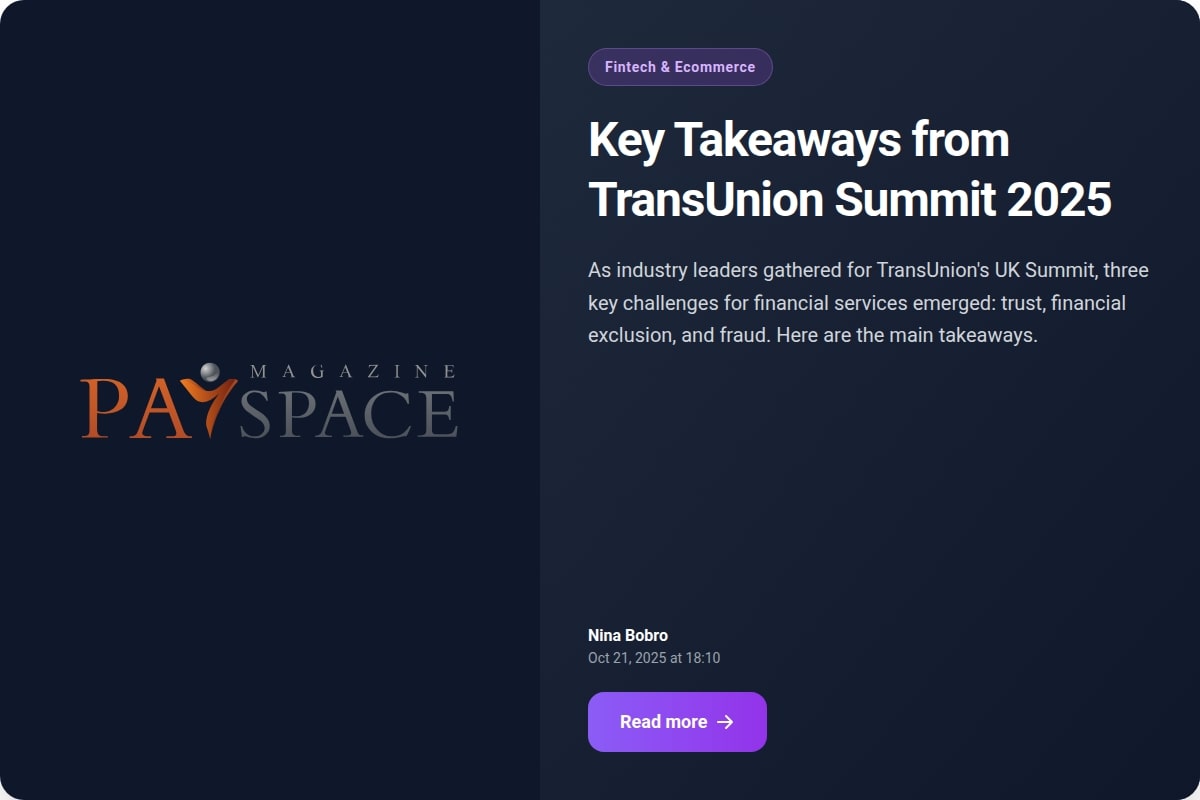As industry leaders gathered for TransUnion’s UK Summit, three key challenges for financial services emerged: trust, financial exclusion, and fraud. Here are the main takeaways.

Global information and insights company TransUnion held its annual UK Summit under the theme “Engage and Empower – Building Trust Throughout the Consumer Journey.” The event gathered leaders from financial services, fintech, utilities, gaming, telecommunications, and other sectors to discuss how data, technology, and trust are transforming consumer relationships and supporting sustainable growth in a changing economy.
Madhu Kejriwal, CEO and Regional President of TransUnion UK & Europe, noted that the Summit served as an opportunity for industry leaders to exchange perspectives on strengthening trust along the consumer journey. Kejriwal emphasised that by addressing challenges collaboratively and sharing effective solutions, businesses and consumers alike can benefit, supporting TransUnion’s broader mission of using data “for good” and fostering a transparent, inclusive, and confident economy.
The discussions highlighted three key themes:
-
Trust as the defining currency of the digital economy
As consumers adapt to rapid technological change and rising risks, organisations are expected to provide secure and transparent experiences across all touchpoints. With the UK Financial Conduct Authority’s Consumer Duty now fully implemented, financial institutions face increasing expectations for fairness and accountability. Upcoming reforms to the Consumer Credit Act and oversight of buy now, pay later (BNPL) products also signal a wider regulatory shift toward prioritising consumer outcomes. Using reliable data and insights helps ensure consumers are accurately represented and that businesses can make better, data-driven decisions. -
Data as a driver of financial inclusion
Despite progress, financial exclusion remains a persistent issue. TransUnion’s Consumer Pulse study found that 75% of consumers consider access to credit essential, though only 58% believe they currently have sufficient access. The combination of richer data and clearer regulatory frameworks can help expand fairer access to credit while improving consumer understanding of financial health and responsibility. -
Balancing fraud prevention with customer experience
With financial losses to fraud reaching nearly £1.2 billion in 2024, the threat remains significant. TransUnion research shows that 70% of UK adults have received scam messages appearing to come from trusted sources, and more than half suspect these scams used artificial intelligence tools such as fake voices or images. Businesses are therefore urged to balance robust, real-time fraud prevention with seamless user experiences, using advanced analytics, device intelligence, and behavioural insights to distinguish genuine customers from potential fraudsters.
James O’Donnell, Director of Research & Consulting at TransUnion UK, observed that businesses have shown renewed optimism despite economic headwinds. He highlighted that organisations are increasingly turning to data-led innovation and placing trust at the centre of their growth strategies, contributing to a more resilient, transparent, and inclusive financial ecosystem.









